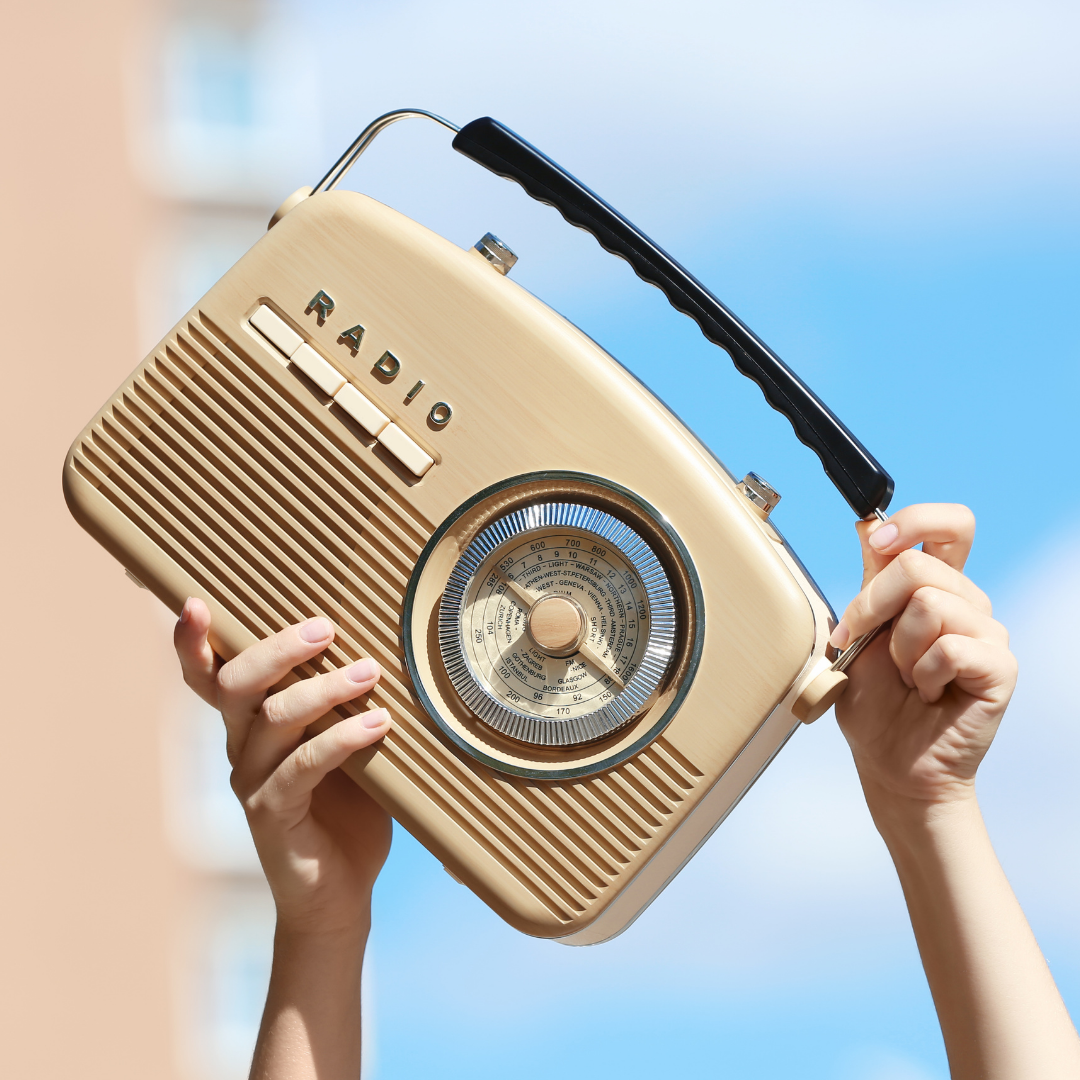
This children’s article, Who invented the radio? A journey from static to sound, has been written for native English speakers and learners of English as a second or foreign language. It can help children build vocabulary, learn about the history of the radio, and understand why it remains important today. Written by Mark Pulley, a teacher and writer who creates fun and informative news articles for English learners.
The story behind the invention of radio
Long before podcasts, pop songs, or breaking news updates, there was one invention that changed how people shared sound with the world: the radio.
Born from a mix of science, curiosity, and competition, it opened a new age of communication that made it possible for voices and music to travel through the air for the very first time.
Who invented the radio?
The story of who invented the radio isn’t simple because several inventors helped create it. In the late 1800s, an Italian engineer named Guglielmo Marconi is often credited as the “father of radio.” He was inspired by earlier scientists like James Clerk Maxwell, who discovered electromagnetic waves, and Heinrich Hertz, who proved they existed.
Marconi realised that these invisible waves could carry signals without any wires. In 1895, he sent the first wireless message over a distance of about 1.5 kilometres. A few years later, in 1901, he made history by sending a signal across the Atlantic Ocean, all the way from England to Canada!
How does the radio work?
The radio works by turning sound into radio waves that travel through the air. These waves are picked up by an aerial (or antenna) and changed back into sound by a receiver, the device inside your radio. The process might sound complicated, but it’s the same basic idea behind how Wi-Fi and mobile phones work today.
Inside a radio station, microphones turn voices and music into electrical signals. Those signals are then broadcast through the air as waves, which your radio can “tune in” to. That’s why you can listen to different stations just by changing the frequency!
Why the radio mattered — and still does
When it was first invented, the radio transformed the way people connected. It made it possible to send news, music, and emergency messages to millions of people at once. During the First and Second World Wars, radio updates were a vital source of information.
Even though we now have podcasts, the internet, and smartphones, radio is still hugely popular. It’s used in cars, schools, airplanes, ships, and even in space. And in times of emergency, when other networks fail, radio often keeps working, bringing people together just as it did over a century ago.

Article vocabulary list
- Inventor – a person who creates something new
- Engineer – someone who designs or builds machines or systems
- Signal – a message sent using sound, light, or radio waves
- Antenna – a metal rod or wire that receives or sends radio waves
- Broadcast – to send out information or programmes to the public
- Frequency – the specific wave pattern that carries a radio station’s sound
- Receiver – the part of a radio that changes waves back into sound
- Wireless – using signals sent through the air instead of wires
- Podcasts – audio programmes that you can listen to online or download
Comprehension questions
Just click the plus (+) to see the answer
1. Who is often called the “father of radio”?
A) Heinrich Hertz
B) Guglielmo Marconi
C) James Clerk Maxwell
Answer: B) Guglielmo Marconi
2. What kind of waves does the radio use to send messages?
A) Sound waves
B) Water waves
C) Electromagnetic waves
Answer: C) Electromagnetic waves
3. In what year did Marconi send a signal across the Atlantic Ocean?
A) 1895
B) 1901
C) 1915
Answer: B) 1901
4. What does a radio antenna do?
A) Plays music loudly
B) Receives or sends radio waves
C) Turns sound into electricity
Answer: B) Receives or sends radio waves
5. Why is radio still important today?
A) It’s used for phone calls
B) It can work even when other networks fail
C) It’s faster than the internet
Answer: B) It can work even when other networks fail

Mark is a writer and EFL teacher from England with eight years’ experience. He’s passionate about travel, sport (especially football), animals, nature, and history, and enjoys helping children explore the world through language and learning.




